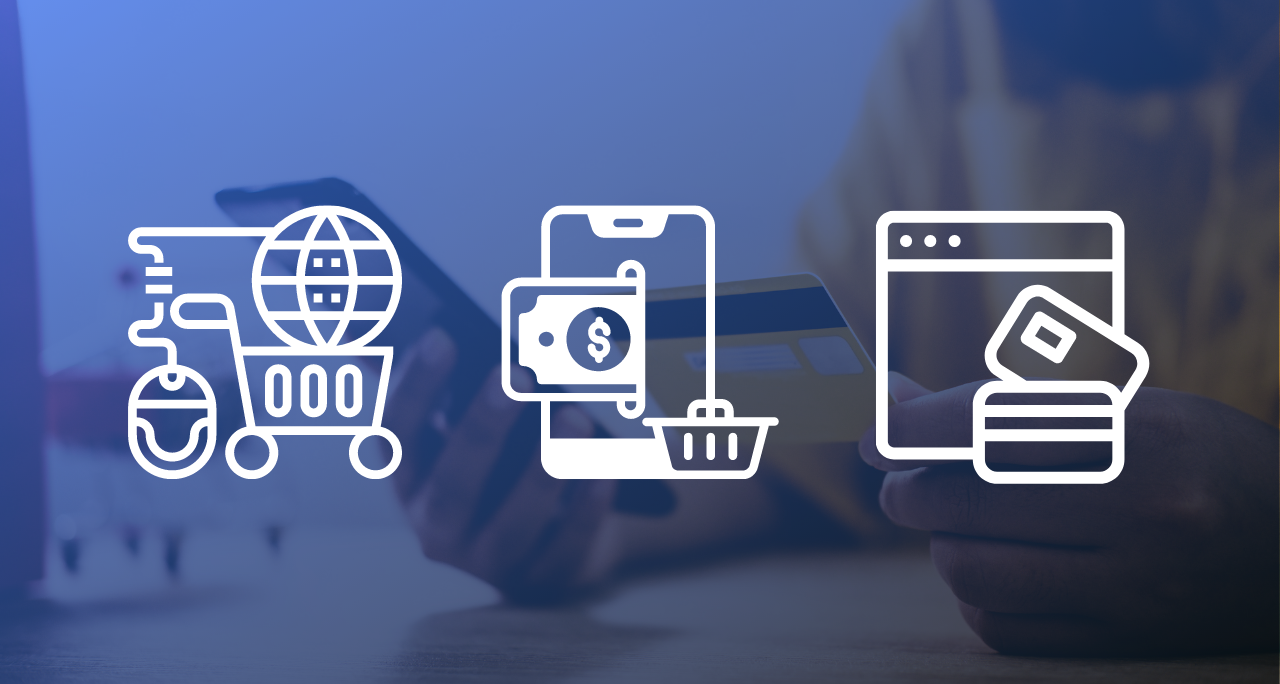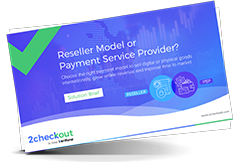Today’s digital shoppers are smart and also demanding. They want to try before they buy, use multiple devices across the purchase process and have a unified experience, and are constantly looking for a better deal and a personalized experience.
The decision to buy, or not to buy, can happen at any instant. This is why it is extremely important that businesses selling online are able to capture customers quickly, across any channel, and on their terms – otherwise they get left behind. These are just some of the challenges that make digital commerce difficult. And things just get even more complicated when selling at global level.
Understanding what a Merchant of Record is and how to leverage these services is a great step towards a great eCommerce journey.
In this article, we’ll explore almost everything you need to know about operating as a Merchant of Record.
We’ll cover:
- What is a Merchant of Record
- How to be your Merchant of Record
- How to partner with a third party, and
- How to choose a Merchant of Record
Let’s start with a brief description of what a Merchant of Record is.
A merchant of record (MoR) is the legal entity authorized to sell to customers and process their credit and debit card transactions.
There are two ways your business can deal with payment transactions:
- You can use a Merchant of Record provider to process transactions on your behalf, or
- You can act as an MOR for your business and process transactions yourself.
If you choose to outsource MOR services, your Merchant of Record integrates a hosted gateway with your online store to allow a third party to process transactions.
The Merchant of Record provider takes on all the risk and responsibility of safely processing payments from your customers.
If you choose to become the MOR and process payments on your website, you will need to take on the risks, responsibilities, and liabilities associated with this task.
Small to medium businesses that don’t have teams of professionals at their disposal tend to use a third party for their MOR service.
Larger businesses and organizations frequently choose to act as their MOR, usually in their home market. So, they often have legal and financial teams that can navigate the legalities and compliance requirements when handling domestic transactions.
While MOR charges a fee for their transaction, often, these are worth the peace of mind to check the legalities and liabilities. It also saves business owners a lot of time and significantly improves market penetration due to offering a localized purchase experience for customers.

How to be your Merchant of Record
Being your merchant of record can reduce costs by eliminating the fees of Merchant Of Record providers. And this is a good option if it’s more economical for your business.
You may employ in-house professionals to manage all Merchant of Record solutions, which include:
- Opening and maintaining the merchant account
- Handling chargebacks and refunds
- Negotiating credit card processing fees
- Ensuring you are compliant with data protection requirements
- Preventing online fraud
- Complying with local taxes and regulations
If your business is to act as a MOR, you must comply with the Payment Card Industry Data Security Standard (PCI DSS), as this is the only way to accept card payments on your site. Created by the PCI Security Standards Council, these standards are designed to develop payment security assurances.
There is no specific Merchant of Record certification required to operate as the MOR for your business. Your obligations with PCI DSS standards are:
- To create or have in place an information security policy
- Have processes and programs in place to protect customer data
- Use a firewall
- Use secure systems and ensure they are maintained
Note that audits are regularly undertaken to ensure high standards for data security.
Also, you will need to meet obligations for laws and requirements of any regulatory bodies specific to all countries you sell to.
In general, most merchants act as their MoR in their own country of residence, while they ousource the MoR role to professional providers in cross-border markets.

How to partner with a Merchant of Record
Partnering with a Merchant or Record provider is an excellent option if you don’t want to deal with the hassle of handling payments yourself. The benefits of partnering with a good MOR provider are:
- You can outsource back-office operations to the MoR while you focus on scaling your business
- It saves you time and hassle by handling financial and administrative responsibilities like tax calculations and refunds.
- It gives you the peace of mind of being compliant with global standards.
- It can make it faster and easier to sell your products and services internationally.
For the end-customer, your working with an MoR or a PSP is not a visible relevant detail. The shopping and checkout experience is just as seamless as when using a payment provider… something along these lines, to suggest there is no disruption in the shopping visit flow.
The MOR handles tax and fee calculations related to the purchase and any requests for refunds and chargebacks. A portion of the sale covers fees and handling, with the remainder going to the business.

How to choose a Merchant of Record
When selecting a Merchant of Record solution, here are some things to look at, depending on your business needs:
- Currencies and Language Support: A good Merchant of Record should support multiple currencies and languages to allows you to sell globally without any exchange hiccups or transaction barriers.
- Payment Channels: Ensure your Merchant of Record supports multiple payment methods like credit cards, debit cards, PayPal, e-wallet transactions. Customers expect to have access to various payment options, and having them means you sell more.
- Refund, Chargeback, and Dispute Policy: What are your refund and chargeback policies, and what kind of dispute resolution services do you offer? Convoluted or unhelpful policies could alienate customers, diminish your return business, and create headaches for you.
- Website Integration: Choose a Merchant of Record that easily integrates with your website or hosting platform.
- Branding: Consistent branding is essential for marketing purposes. While this could not be a priority, you can always check your options.
- Mobile Experience: In 2021, 72.9% of all retail eCommerce is expected to be generated via m-commerce, up from 58.9% in 2017. Ensure your Merchant of Record has an excellent mobile experience for sale.
- Pricing: Merchants of Record charge a percentage of every transaction for their services, much like PSPs do, which differs by the providers. Before settling for any Merchant of Record, ask for a complete rundown of their fees to avoid hidden costs.
Also, while some providers can charge lesser fees that others, check the value of their services to ensure it suits your need. For instance, a MOR that doesn’t support different payment channels or currencies could charge less, but that doesn’t make them an ideal option. Other features you should check include.
Choosing the right MOR provider can make life easier for you as a business. Still, it should also enhance the customer experience.

Conclusion
Finding the right Merchant of Record provider for you can make the world of business ownership a little easier. I can also help expand your horizons with international sales.
Here at 2Checkout we offer Merchant of Record solutions to remove the guesswork and hassle of payment processing. Our flexible modular platform gives you access to a full suite of tools, from which you can use just those which address current business needs.
Want to learn more? Download this eBook to discover the two main payment processing setups available through 2Checkout − Reseller (Merchant of Record) and Payment Service Provider (PSP) − and how each can help you sell products or services online.





